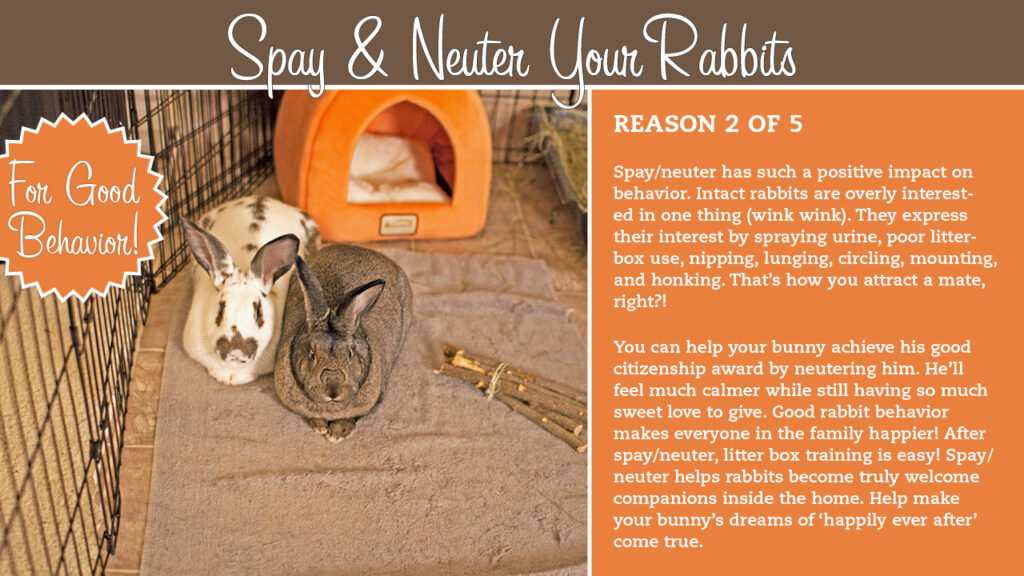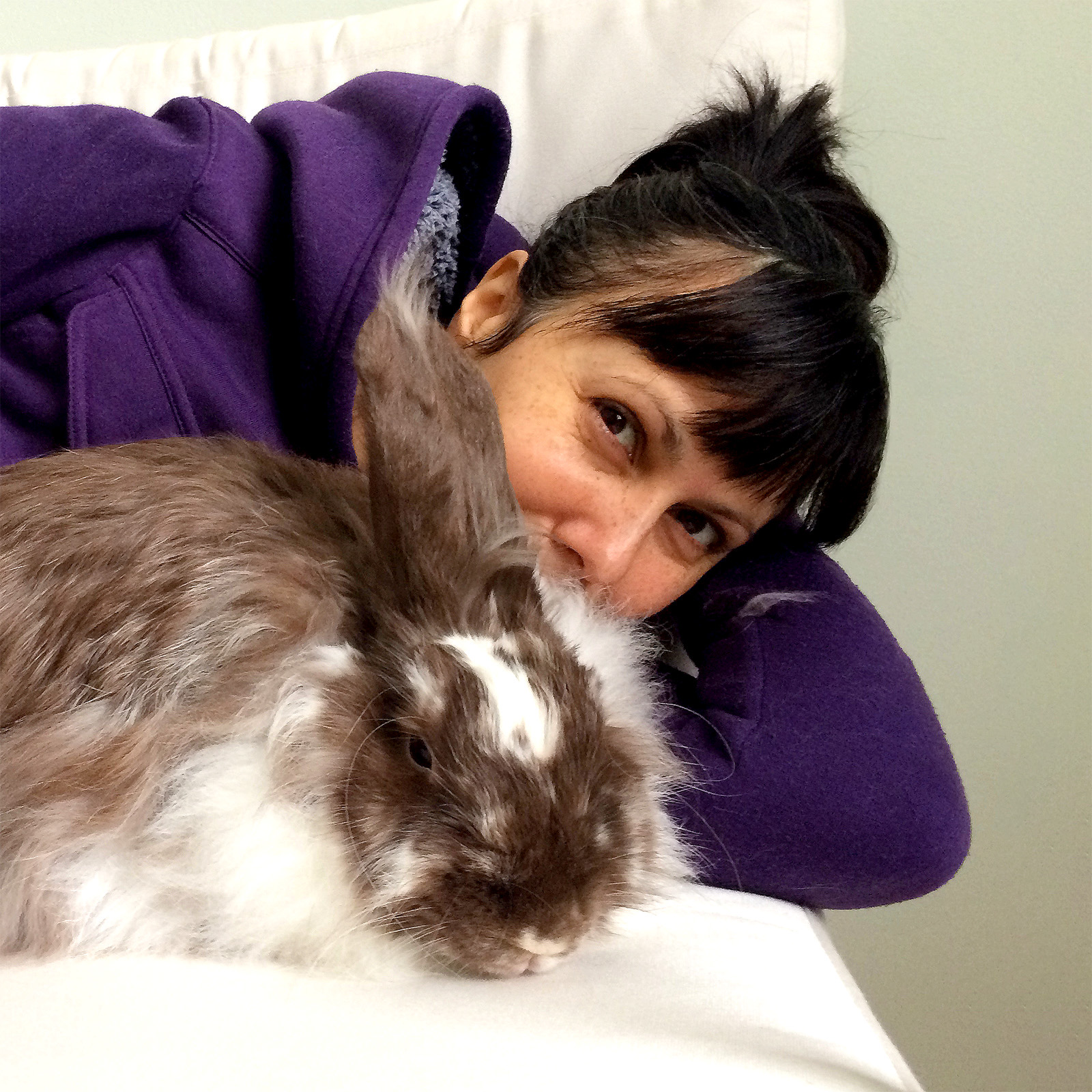part two of a series on the benefits of spay/neuter
We’ve discussed how spay/neuter helps rabbits live longer, healthier lives. Did you know that spay/neuter also has an enormous positive impact on rabbit behavior?
Intact rabbits are sexually aggressive animals. Sex hormones are responsible for amorous displays such as nipping, lunging, circling, mounting, or honking. Sex hormones are also often responsible for false pregnancies, marking territory with strong smelling urine or feces, litter training problems and excessive destruction. Most people don’t find these behaviors endearing!
Many rabbits lose their homes when they reach sexual maturity and start to exhibit one or more of these behaviors. A formerly sweet baby bunny can turn into an aggressive, urine-spraying teenager. However, this change in behavior is normal and expected. The easy, humane solution is to spay/neuter.
Spay/neuter removes the hormones that compel rabbits to these undesirable behaviors. A neutered rabbit is calmer, friendlier, easy to litter box train and a welcome companion in the home.
Females can be spayed around 4 to 6 months (depending on the veterinarian) and males can be neutered as soon as the testicles descend, usually around 10 to 12 weeks. Bunnies up to 6 years old are also good candidates for spay/neuter surgery. A simple, pre-surgical blood panel is recommended for bunnies over 2 years of age. After surgery, allow one month for the hormones to subside and better behavior to emerge.
Many areas offer low-cost s/n services for households that qualify. Check your local rabbit rescue or animal shelter for recommended veterinary services and local low-cost s/n options. Spay/neuter can help improve your bunnyʼs behavior and help you achieve long-term happiness with your rabbit companion.
More Reading
- Spaying and Neutering Basics
- Howcast Video: Should You Spay/Neuter Your Pet Rabbit?
- Spay or Neuter my Rabbit? Article by Dana Krempels, Ph.D.

